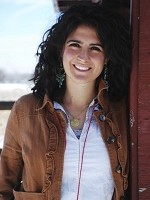I’m here to study honey.
When I first quit my job to move back to Kars, Turkey, almost every person I met would ask me: “why would you ever move to a rural place like Kars?”
At first, I could tell by their looks that they were suspicious: Are you here to write a book? Are you here to study politics and the Armenian issue? Are you a spy, an agent, a fraud? With Turkey’s beautiful seas, massive west coast tourism industry, and Istanbul, why, oh why would you ever go east to Kars, and (gasp), stay?
“I’m here to study honey,” I would reply confidently.
Immediately, their faces would shift. Anyone who really knows about Turkish honey understands that Northeastern Turkey has one of the most established beekeeping and honey traditions on earth.
It is the birthplace of the original Caucasian bee, with an ancient trade culture around honey and local products spanning hundreds of years back to the Silk Road. Co-evolving with the endemic bee population are over 2,000 local flower species, which results in a floral blend of many different honey flavors.
It is a wonder to think that wine tasting, in which 75% of wines are made from one grape type –instead of honey– has dominated most tasting adventures.
The market opportunity of honey tasting in a place like Northeastern Turkey is substantial; think a unique culinary travel experience that is environmental and family friendly, as well as on foot.
But even more than a sweet business idea, its greatest potential lies in how it can shift circumstances for local women to help them become rural entrepreneurs.
While I have believed this since first living in the region in 2008, it has taken me a full four years to get the guts to build a business that can accomplish this, and to have the confidence that the idea will work.
After living with a group of women –honey and environmental experts– I have decided to go ahead and start Balyolu: The Honey Road.
Now a team of five plus four villages, we are the first of its kind, honey-tasting walking tour, led and inspired by women in Turkey’s Northeast.
More than 10,000,000 women live in rural parts of Turkey, and although Turkey has one of the world’s lowest employment rates for women (22%), women are working full-time (albeit unpaid) while they care for their large families and run small family farms. But in these remote villages, they are cut off from the city centers, so there are limited opportunities to translate this labor into income, educational opportunities, or professional development.
Organic beekeeping, particularly in rural untouched areas such as Northeastern Turkey is an ideal livelihood for women, because women are stable –therefore not moving their bees into areas with harmful crops or pesticides– and beekeeping can be done right from their backyards without taking away too much time from raising a family.
However, in a place like Turkey, where the word “organic” does not yet have clear quantifiable meaning; where these rural villages are isolated from local markets; where producing organic honey yields small amounts; where most of the women beekeepers we are targeting –those at the bottom of the pyramid– do not have an education past 6th grade; these women have a hard time competing in a domestic market full of honey.
By subsidizing honey production with compelling nomadic travel experiences that are full of authentic cultural interactions, such as bread-making workshops with a local villager or birding with a local non-profit, we hope to use travel to create a mobile marketplace of ideas, and cultural exchanges that walk right to a woman’s village.
True to the Silk Road model, we are harnessing walking routes in rural areas to shift the dynamics of poverty, particularly for women. With Balyolu, over 70 percent of trip funds are reinvested back into local communities through organic beekeeping, hospitality, and marketing trainings; as well as incubation of new green small businesses.
Almost a year later, instead of people asking me “why would you ever go to Kars?” the much more frequent question is “when can I book a trip?”
For the next year, I will be writing you from my home in Kars, sharing the trials and tribulations of building an environmental business by and for women; living in rural nomadic villages on the Georgian and Armenian borders of eastern Turkey; and studying the universal dynamic intersections of nature and humanity through the complex lives of bees.
Thank you for joining me on this journey.
As we at Balyolu like to say, it’s adventure at its sweetest!
~
Editor: Andréa B.
~ Like elephant culture & elephant adventure on Facebook. ~











Read 8 comments and reply